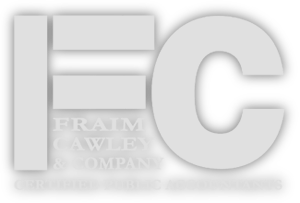Originally published July 22, 2013
“Oh, a storm is threatening
My very life today
If I don’t get some shelter
Oh yeah, I’m gonna fade away”
– The Rolling Stones, “Gimme Shelter”
While The Rolling Stones certainly didn’t write “Gimme Shelter” to address housing questions, the need for a roof over our heads is one of the basic requirements of all people – being one third of the proverbial “food, clothing, and shelter.” We all need some place to live, obviously. Less clear though is the decision whether we should buy or rent our “shelter.”
Traditional wisdom has always held that owning your home is the best decision over the long term; however the real estate bubble-and-burst of recent years has more people reconsidering that choice, and has prompted a new breed of “pundits” who are recommending renting instead of buying a home.
Over the past few years I have seen an increasing number of articles stating that buying a house provides no true return on investment (ROI) and that renting is a better choice. Now that the housing market has started to recover these articles are finally less in vogue, but they still pop up from time to time. To justify their viewpoint, so-called financial experts cite that the rate of return for blue chip stocks are higher than the appreciation for houses – especially after mortgage interest and taxes are taken into account. They point to the volatility in the housing market and recent declines. They note the costs associated with repairs and upkeep of a house. All of these are valid points. But they use them to come to this conclusion: buying a house provides a neutral or even negative return on investment and that renting is the better choice. The problem? Their basis for comparison is all wrong.
As Dostoevsky said in Crime and Punishment: “’We’ve got facts,’ they say. But facts aren’t everything; at least half the battle consists in how one makes use of them!” In other words, the facts cited by the renting-is-better proponents aren’t inaccurate – in and of themselves. It’s just that they are being improperly analyzed, only partially examined, and being used to support erroneous conclusions.
The issue with the argument is three-fold. First, many people do not do well saving money on their own. Unexpected bills, reckless spending, and lack of knowledge on how to make or stick to a budget all create a situation where people not only do not save but stay in high-interest credit card debt. The most effective way to encourage saving is for it to be “forced”. 401(k)s, portions of income being drafted into other secondary accounts, and mortgage payments all provide an automatic, thoughtless saving that most people will not do consciously.
Second, a home is a highly leveraged investment – meaning that for the vast majority of people borrowed money (a mortgage) is used. Because of this, the appreciation of a home increases the investment return – the return on the actual cash put into the purchase for the down payment – many times over. For example, let’s say that a person has a $10,000 (10%) down payment on a $100,000 house and in the first year the house appreciates 2% ($2,000). Two percent doesn’t sound all that impressive. But the owner of the house did not invest $100,000, they only invested $10,000. So they gained $2,000 on $10,000 – a 20% return! Granted, this is before the costs of upkeep, taxes, and other legitimate costs. Still, this is a far higher return (on the actual down payment dollars) than is the historical norm for the stock market, and a home is (in most periods) a reasonably stable investment.
NOTE: This discussion could take a different turn with a different conclusion if one were comparing an all cash purchase of a home – in this example for $100,000 vs. investing that $100,000 in the financial markets and then renting a home – since historical returns for the stock market are higher than for residential real estate. But obviously, very few home buyers are in the position to pay cash for their home.
The third point is the more important piece: they should not compare buying a house with investing in the stock market. That is not the choice (see “note” above). The choice is between buying and renting. People have to spend money for a home – either by renting or by purchasing. And all of the supposed analysis in the aforementioned articles – and their comparisons to stock market investing – somehow bypass that. They say “repairs and mortgage interest costs coupled with lower rates of appreciation make stock and bond investments a wiser choice. So don’t buy a house, rent one.” How spurious of a correlation is that? The ROI on stocks has nothing to do with the merits of renting vs. buying a home.
And when it is broken down solely between those two options, the decision is much simpler. While costs are associated with home ownership, equity is being built up in the process. Renting is a straight cash outflow with no benefit to the renter. Mortgages stay constant over the term of the loan while rent only increases over time. Housing values do increase in the long-term while renters only see this reflected in those increased lease payments. And mortgage interest, real estate taxes, and some other costs of home ownership have tax benefits.
This isn’t to say that in the very short term that owning a home is a money maker. But over the longer-term, isn’t the choice clear?
As always, if you have any questions whatsoever or would like to talk please visit me online at FraimCPA.com or call me at (540) 314-0345
IRS Circular 230 Notice: To ensure compliance with requirements imposed by the IRS, we inform you that any federal tax advice contained in this communication (including any attachments) is not intended or written to be used, and cannot be used, for the purpose of avoiding penalties under the Internal Revenue Code.




